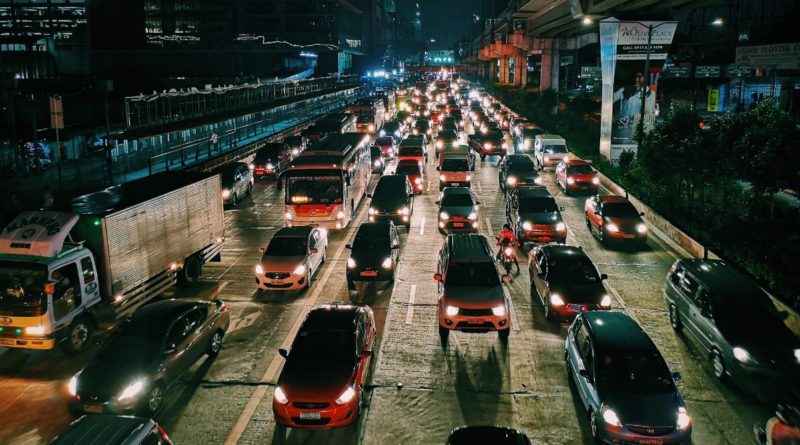European cities’ move to expel the car accelerates, UK fights change
A trend towards expelling the car from cities continues to develop in Europe, with Barcelona the latest to pledge a ten-year plan to convert spaces for use by people rather than motoring.
Delivered in tandem with news that the Spanish Government will legislate in a bid to reduce deaths and serious injuries attributed to driving, the city will create “green zones”, converting one in three streets into such areas in some parts of the city. 21 new public spaces have been proposed as part of the vision, which further seeks to hand over space to pedestrians and cyclists. The idea is that at no point will a citizen in the grid-based city be further than 200 metres from a green space.
“The Cerdà plan modernised Barcelona at the end of the 19th century and we are reviving that spirit of urban transformation to bring the Eixample into the 21st century,” said deputy mayor, Janet Sanz.
The shift in political will is backed up by significant funding; some €37.8 billion is pledged to bring about the changes over the next decade. As has been seen (and fought) in London, Low Traffic Neighbourhood style streets will become the norm, with planters and benches laid to reclaim streets for vehicles.
In total as many as 500 of the “superblocks” could come to fruition if the vision of stunting car use in cities is carried out in full, though at present just six have been installed with a further 11 due in the next few years.

As part of their Covd-19 exit strategies, various other European territories are likewise planning to phase out reliance on motoring. The Belgian Government has centred its policymaking on cleaner air and lowered congestion in the city centre. Thus far priority has been handed to pedestrians and cyclists inside the “pentagon” ring road circling the centre. Inside that boundary special permits are to be required for drivers demonstrating that their vehicles are low polluters. Furthermore, a 12mph speed limit is enforced, which arguably may prompt people to wonder whether it’s worth driving at all.
The situation where deaths attributed directly and indirectly to motoring has got bad enough for the United Nations to wade in with a strong recommendation to Governments on active travel investment and the removal of the car’ from cities.
In a report recommending that “at least 20%” of transport budgets should go to active travel, Erick Solheim, the UN Environment’s executive director wrote “There would be an international scandal if the world knowingly let the entire population of Australia, Ghana or Nepal die in just 15 years,” in reference to the number of road deaths around the globe.
Likewise, the European Commission’s Vice President now describes investment in bike lanes as “a no regret investment” and one that will form part of the EC’s Green Deal recovery.
To be spent by the close of 2022, the EU has put up a €670 billion Recovery and Resilience fund which is designed to “mitigate the economic and social impact of the coronavirus pandemic and make European economies and societies more sustainable, resilient and better prepared for the challenges and opportunities of the green and digital transitions.” A chunk of this has been earmarked for transport reform across member states, for which the UK will no longer be one post Brexit.
As reported last week, in Lithuania subsidies are emerging for trade ins of polluting vehicles, with the greatest uptake coming from electric scooters and bicycles.

What’s the UK doing at present?
The latest news is not positive. Cycling UK has issued a non-typical blunt statement on the back of 14 Conservative MPs, including former cycling minister Robert Goodwill, writing to the Transport Secretary Grant Schapps to withdraw the already small fund for emergency active travel. The objection relates to a second tranche of funding that is expected to make some of the more successful temporary measures to induce active travel more permanent.
“Why bother with evidence,” wrote the cycling charity’s head of campaigns Duncan Dollimore.
He told Road.cc: “The so-called War on the Motorist these MPs are shouting about is a myth promoted by organisations spouting fiction rather than fact, determined to turn a blind eye to the telescope whenever evidence is presented to them.
“If they listened to the experts, which is perhaps a big ask for some of them, they’d discover that investing in cycling and walking initiatives is incredibly cost effective; moves more people in less space, reducing rather than causing congestion; and boosts the local economy. Or perhaps they do know this, but the facts just don’t suit their narrative.
“They claim this policy is indefensible, but whilst the policy may not have been perfectly implemented, what’s indefensible is the short-sighted do nothing attitude these MPs are displaying to measures designed to enable more people to move around our towns and cities more efficiently, in a healthier socially distanced manner, whilst reducing air pollution and carbon emissions.
“But why bother about evidence, the environment and longer term solutions to endemic problems when you can blame everything on a cycle lane?”
The MP’s letter was backed by staunch anti-cycling and pro-motoring groups who appear to have secured the ear of the group of MPs keen to keep the car a feature of cities. These groups include climate change denying orgs like Fair Fuel UK and the Association of British Drivers.
Meanwhile, in research led by automotive services group the RAC it was found that reliance on motoring appears to be on a sentimental rise on the back of the pandemic. In its annual Report on Motoring 57% of people stated that having access to a car is now more important than it was prior to the pandemic’s arrival. It is the first time since 2002 that fewer than half of motorists felt the need to reduce car use.
The RAC’s data insight spokesman, Rod Dennis, said: “As cities seek to improve air quality and make urban centres cleaner places, it’s clear that low-cost, efficient alternatives to the car need further thinking and much greater financial investment.”
“Without a concerted effort from government and local councils, the pandemic risks putting efforts to encourage drivers out of their cars for some trips back by years.”



